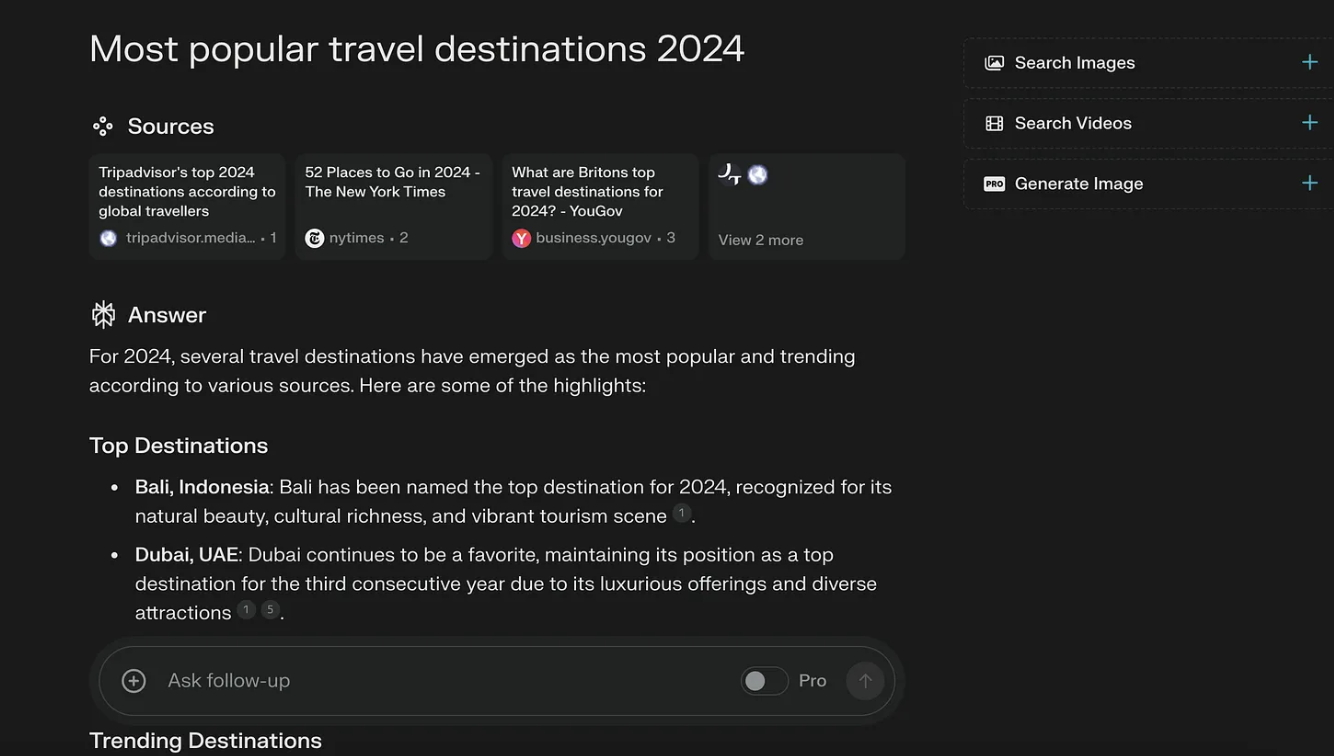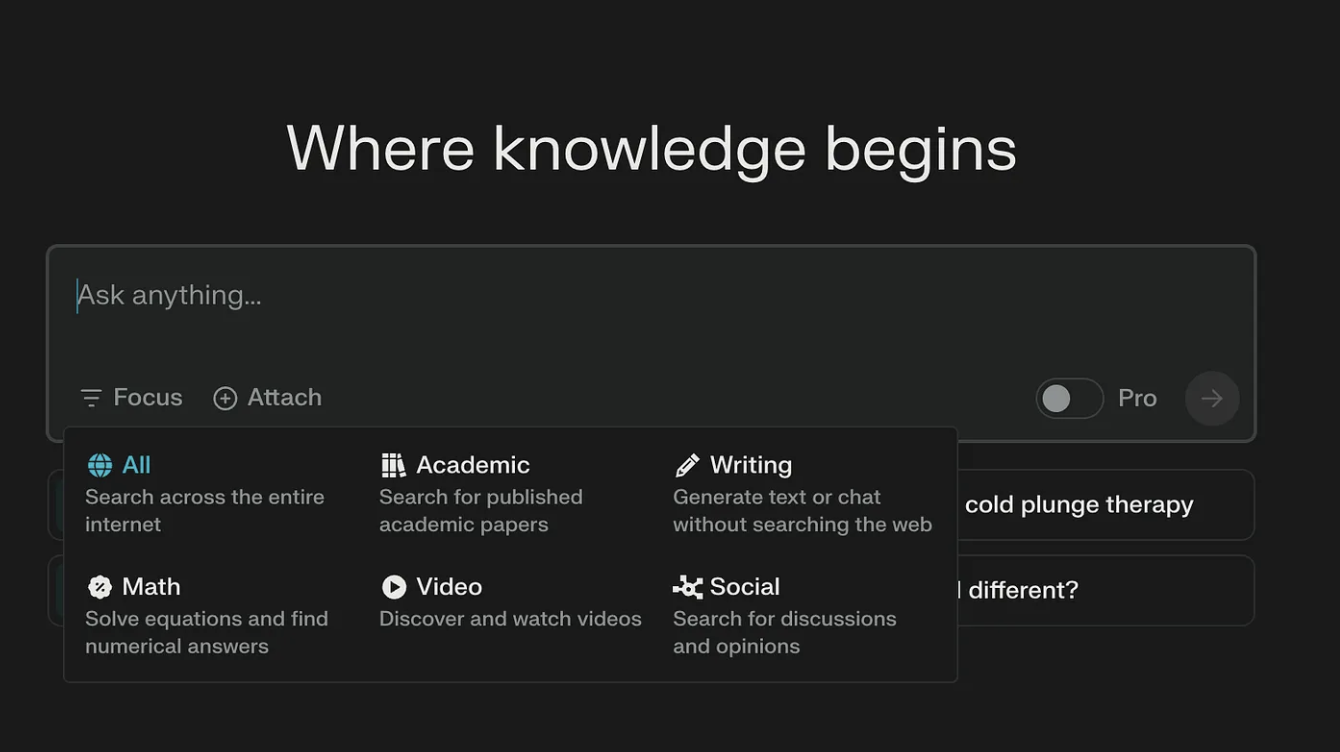Watch out Google. AI search engines are on the rise.
Image credit: OpenAI blog
AI search engines have been a thing for a while. But OpenAI has just announced the arrival of its long-awaited search engine, SearchGPT.
It’s being rolled out to a small group of users for now, but according to their blog, here’s what we can expect.
An easier and faster way to search for information.
SearchGPT will quickly respond to your questions with up-to-date information from the web. It’ll also give you links to relevant sources.
Ask follow-up questions, so it’s more of a conversational experience.
The search engine will also help you discover publishers and experiences (this is where their partnerships with organisations like the New York Times will come into play).
You can watch the demo here:
Why wait? Cue Perplexity – the AI search engine that’s already leading the way.
If you haven’t tried it yet, I’d really recommend checking out the existing AI search engine: Perplexity. (Or Answer Engine, as they call it.)
I’ve been using this for a little while now, and I talk about it in all of my training workshops.
Here’s a quick rundown if you’re not familiar with it.
What is Perplexity?
Perplexity was founded in 2022.
As of April 2024, it was valued at $ 1 billion and has been supported by influential investors including Nvidia, Amazon and Jeff Bezos himself.
Recent research from BrightEdge said that “referrals from Perplexity to brand sites are growing at nearly 40% month over month since January”.
Perplexity has a built-in search engine but also uses AI large language models, including GPT-4o and Claude 3 to provide its summarised results.
How do you use it?
Instead of getting a list of search results (like Google search), Perplexity gives you one answer. Plus, citations and links to sources, so you can quickly fact-check or dive deeper.
You can also focus your search on a specific area. Video, academic, video, social, or the entire internet? You decide.
Two search options
You have two search options within Perplexity – and you can access both for free.
Quick search - for simpler searches and fast results.
New Pro Search - aims to understand the specifics of your question. It can also ask follow-up questions for more specific results.
You can use Pro Search five times every four hours for free. If you need more, you’ll need to upgrade to the paid version.
Here’s a quick demo:
What can marketers and content creators use Perplexity for?
I use it for research. It’s a great way of surfacing sources and articles on a particular topic.
You can ask it to find videos or images on your specific search too, so you have more valuable results to explore.
Any downfalls?
For me, the biggest downfall of AI search engines is the risk of hallucinations. It comes with the territory of using large language models.
While I haven’t spotted massive anything yet, I’ve read several articles suggesting Perplexity can embellish answers.
So, as ever, check your AI-generated answers using the cited sources – and do a proper fact check.
There’s lots more to Perplexity. But I hope this gives you a good idea of how AI search engines are evolving.
It’ll be interesting to see how SearchGPT compares.


